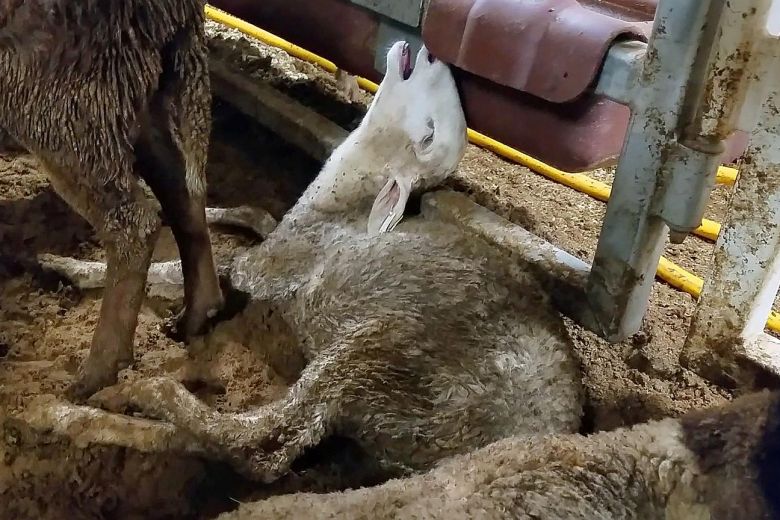
Australian Live Exporter Charged With Cruelty to Animals
Emanuel Exports and two of its former directors have been charged with cruelty to animals by the Western Australian government.
The charges come after abhorrent abuse was exposed on the company’s ships. On one especially deadly journey, on-board conditions resulted in the deaths of more than 2,400 sheep – and whistle-blower footage of their plight aired on news show 60 Minutes last year.
These charges are set to be another nail in the coffin of the live-export industry, which has crammed more than 200 million animals onto filthy cargo ships over the last 30 years, only for more than 2.5 million of them to be trampled to death or die from dehydration, starvation, or disease.
After 60 Minutes broadcast the whistle-blower footage, Emanuel Exports and its sister company, EMS Rural Exports Pty Ltd, had their export licences cancelled. Now, finally, we hope to see some sliver of justice as those responsible for forcing animals into these appalling conditions face their day in court.
Emanuel Exports is not “just one bad apple” – its mistreatment of living, feeling beings is standard in the live-export trade, and such cruelty must not be allowed to continue. While the government’s three-month moratorium (from June to August 2019) on exporting live animals to the Middle East is a good first step towards ending this suffering, it doesn’t go far enough. As part of its draft Heat Stress Risk Assessment, the independent Technical Reference Panel commissioned by the Department of Agriculture found that conditions aboard live-export ships to the Middle East between May and October routinely exceed the heat-stress thresholds of Australian Merino sheep.
As long as animals continue to be shipped thousands of kilometres in all weather extremes, sensitive beings will keep suffering and the death toll will continue to rise. The only way to end this misery is for the government to introduce a permanent ban on hellish live-export journeys. Please write to the Department of Agriculture now to demand that it prohibit the export of live animals between May and October at the very least.
Animals Are Suffering in Laboratories – Help Save Them Now


